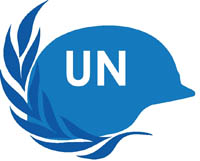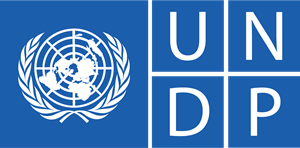Duties and Responsibilities
The United Nations Environment Programme (UNEP) is the leading global environmental authority that sets the global environmental agenda, promotes the coherent implementation of the environmental dimension of sustainable development within the United Nations system and serves as an authoritative advocate for the global environment. UNEP’s Disasters and Conflicts Programme works with international and national partners, providing technical assistance and capacity development for the implementation of environmental policy, and strengthening the environmental management capacity of developing countries and countries with economies in transition. The Disasters and Conflicts Programme extends UNEP’s work to areas of the world where the natural and human environment have been damaged from conflicts or disasters. Specialized environmental expertise is provided to rapidly identify risks to health, livelihoods and ecosystem services and to integrate environmental needs within the recovery process. The Disasters and Conflicts Programme promotes sustainable management of natural resources in conflict and disaster affected countries. The branch’s work demonstrates to decision makers the importance of natural resources management as a precondition for sustainable development and as an instrument for peace building and disaster risk reduction. Since 1999, the team has conducted field operations in over 40 countries and works in close cooperation with the humanitarian, development and peace-building frameworks of the UN system. More information can be found at www.unep.org/disastersandconflicts. Communications are a key strategic priority for UNEP as part of the organization’s mandate to advocate for the environment. This is achieved through a wide range of communications activities at national and global level, including an active social media presence. The Disasters and Conflicts Programme is working directly with teams in many countries around the world, as well as at a global level on communications related to its work. UNEP’s Environment Security work focuses on understanding how environmental degradation and climate change interact with peace and security dynamics ensuring that effective measures are put in place to protect the environment, ensure resilience to climate change, and promote peace in politically complex and fragile contexts. UNEP achieves these two goals through: Analysis: what is the state of the environment, how it is changing, what are the drivers and pressures, what are the linkages between environmental degradation, peace, security, and stability, what are priority concerns, how do specific environmental changes impact people and conflict/peace dynamics. Solution-design: Identifying good environmental practices to address priority issues (e.g. ecosystem restoration, natural resource government mechanisms and agreements, infrastructure for water storage and harvesting…) Support to implementation: Identifying partners and donors, forming and managing partnerships; convening, process-design, managing and negotiating hurdles with political sensitivity. This internship position is for a person who will support UNEP’s communications and outreach activities for our Climate peace and security advisor for Somalia and support the work in Somalia. The Internship is UNPAID and full-time. Interns work five days per week (35-40 hours) under the supervision of a staff member in the department or office to which they are assigned. Under the general supervision of the 2nd Approving Officer and the day to day supervision of the Supervisor/1st Approving Officer, the incumbent will perform the duties listed below during the Internship: Climate security in Somalia is a critical area of focus for UNEP, given the interconnected challenges of climate change and conflict within the country. Climate-related risks can exacerbate insecurity and create vulnerabilities for communities. UNEP’s work emphasizes integrated approaches to address these challenges by working with government to develop policies and coordinating stakeholders that contribute to peace, stability, and environmental sustainability. The Climate, Peace and Security Research and Communications Intern for Somalia will play a pivotal role in supporting UNEP’s Climate Security efforts through research, reporting, and strategic communication. Duties and Responsibilities Under the supervision of the Climate, Peace and Security Advisor, the intern will work on: Conduct desk research on climate, environment, and security linkages in Somalia, including water management, food security, displacement, and conflict dynamics. • Draft policy briefs, talking points, background notes, and advocacy materials to support UNEP’s engagement with government counterparts, UN agencies, and international partners. • Assist in the preparation of speeches, presentations, and reports for high-level meetings, conferences, and donor engagements. • Support knowledge management by documenting lessons learned, best practices, and outcomes of advocacy and policy engagements. • Provide communications support, including drafting articles, web content, and social media posts showcasing the advisor’s and UNEP’s climate, peace, and security work in Somalia. • Assist with coordination and follow-up with Somali line ministries, UN partners, and other stakeholders, ensuring coherence in messaging and advocacy. • Contribute to event planning, including organizing side events, technical workshops, and inter-agency coordination meetings.
Qualifications/special skills
• Currently enrolled in or recently graduated from a graduate program in International Development, International Relations, Political Science, Environmental Studies, Conflict Studies, Communications, or related field. Applicants to the UN Internship Programme are not required to have professional work. experience. However, a field of study that is closely related to the type of internship that you are applying for is required. Applicants must be a student in the final year of the first university degree (bachelor or equivalent), Master’s or Ph.D. Programme or equivalent, or have completed a Bachelor’s, Master’s or PH.D. Programme. Do you meet any of the above criteria? If yes, please indicate which one and attach proof to the application. Please note that you will have to provide an official certificate at a later stage.






